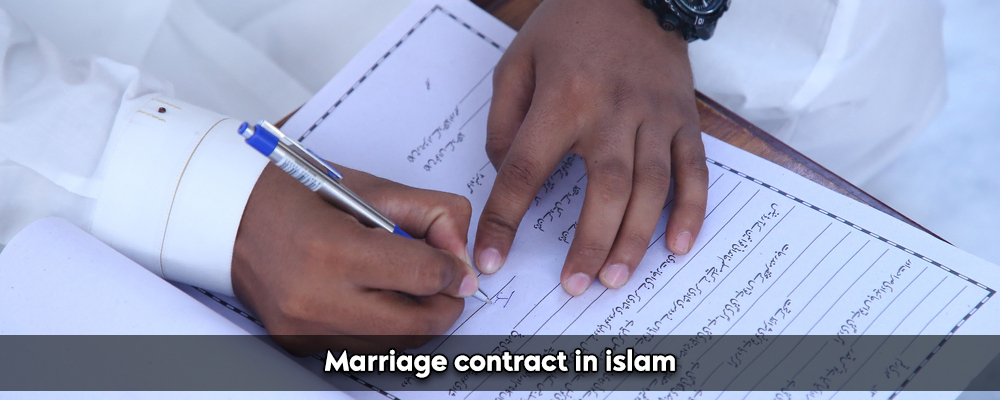Muslim law refers to marriage as Nikah. The word’s Arabic meaning is “union of two people.” Baillie’s Digest as a contract that permits sexual relations and childbirth defines Muslim marriage; however, in Hedaya, a commentary or guide on Islamic law, the word “nikah” refers to a carnal conjunction in its most basic form. The Prophet of Islam declared that marriage is his sunna or the customs of the Prophet Muhammad and that his adherents are obligated to respect and adhere to these customs.
One question that always comes up when discussing the nature of Muslim marriage is whether it is a contract or a sacrament. While some legal scholars contend that Muslim marriage is a civil contract, others contend that it is a sacrament in and of itself. Thus, three distinct factors are considered when researching the nature of Muslim marriage. These are the following:
- Legal aspect
- Aspect social
- The religious dimension
Need A Legal Advice
The internet is not a lawyer and neither are you. Talk to a real lawyer about your legal issue

The legal aspect of Muslim marriage
According to the legal perspective, marriage is a civil contract among Muslims because it shares traits with contracts. These are the following:
- Similar to a contract, there is a proposal (Ijab) from one party and an acceptance (Qubul) from the other.
- Unrestricted consent is crucial in a contract. In a similar vein, consent from both parties is required for a marriage to be consummated, and consent cannot be gained by deception, coercion, force, or other unfair means.
- When a minor reaches the age of majority, which for Muslims is puberty, they have the right to annul any marriage that their guardians may have forced upon them. Another name for this puberty option is khyar-ul-bulugh. In a similar vein, a guardian may annul or take control of a contract they signed on behalf of a minor once they reach majority.
- Any form of ante-nuptial or post-nuptial agreement between married parties may be signed as long as it is legally enforceable. The only requirement is to make sense and not conflict with their religious beliefs.
- The bride and groom may modify the terms of the marriage as stated in the nikahnama, provided that they stay within the bounds of the law.
Aspects of Muslim marriage in society
Muslim marriages have goals, just like any other marriage. These are listed in the following order:
- It mandates that household life continue.
- Having offspring.
- Duty and consideration for the spouse and kids.
- The survival of the human race.
- Chastity, reciprocal love, continence, affection, and tranquility attained.
The Muslim marriage’s religious component
A different perspective on Muslim marriage holds that it is a religious sacrament rather than just a civil union. Some jurists, meaning a devotional act, consider it an Ibadat. According to the Prophet, every Muslim who is able and willing to assume the responsibilities of a wife and children must get married. Here are some indications that this is more than just a contract:
- In contrast to a civil contract, it is not contingent on upcoming events.
- Muta marriage is an exception to this rule, which states that it is done for a limited time only.
- Unlike in a civil contract, there is no such thing as a right of lien in a Muslim marriage.
- Given to the wife, the dower is regarded as a symbol of honor and deference.
Thus, it can be said that although marriage is seen as a sacred covenant in Islam, it is also a contract. The intention is to keep society free of immorality and filth. Abdul Rahim provided a fair explanation of Muslim matrimony. He claims that Muslim marriage is regarded as both a mama, or transactions between men, and an ibadah, or devotional act.
The fundamentals of Muslim matrimony
The components of a Muslim marriage, or nikah, are as follows:
- The parties need to be capable.
- Every formality needs to be completed correctly.
- Both parties must give their free consent.
- It must be devoid of all legal restrictions.
The primary issue with Muslim law is that it lacks codification, in contrast to Hindu law. This has resulted in various interpretations and practices, which have added to the chaos and muddle. Some of its actions were deemed unconstitutional because they violated fundamental rights.
Lead India provides a variety of legal services, including free legal advice and online information. Here, you can ask a legal question and talk to a lawyer.





 Talk to a Lawyer
Talk to a Lawyer